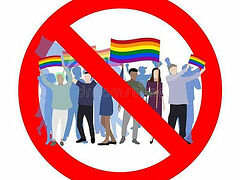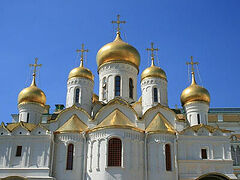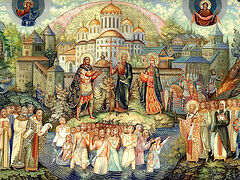Moscow, November 10, 2022
Russian President Vladimir Putin signed a decree yesterday on the “foundations of the state policy for preserving and strengthening traditional Russian spiritual-moral values.”
The aim is to preserve Russian state security by defining a system of values to be supported and inculcated in Russian society. The decree concretizes particular strategic provisions for national security until 2025.
The document reads:
Traditional values are moral guidelines that form the worldview of Russian citizens, passed down from generation to generation, underlying the all-Russian civic identity and the unified cultural space of the country, strengthening civic unity, which have found their unique, original manifestation in the spiritual, historical, and cultural development of the multinational people of Russia.
Traditional values include life, dignity, human rights and freedoms, patriotism, citizenship, service to the Fatherland and responsibility for its fate, high moral ideals, a strong family, creative work, prioritizing the spiritual over materialism, humanitarianism, mercy, justice, collectivism, mutual assistance and mutual respect, historical memory and continuity of generations, unity of the peoples of Russia.
Christianity, Islam, Buddhism, Judaism and other religions, which are an integral part of the Russian historical and spiritual heritage, have had a significant impact on the formation of traditional values common to believers and non-believers. Orthodoxy plays a special role in the formation and strengthening of traditional values.
Threats to traditional values listed in the decree include: the activity of extremist and terrorist organizations, certain mass media/mass communication outlets, the actions of the U.S. and other unfriendly states, a number of transnational corporations and foreign non-commercial organizations, and the activities of certain organizations and people in Russia.
The ideological and psychological impact of these threats upon Russian citizens leads to a foreign value system that is seen as a destructive ideology, including:
the cultivation of selfishness, permissiveness, immorality, denial of the ideals of patriotism, service to the Fatherland, natural continuation of life, the values of a strong family, marriage, large families, creative work, Russia’s positive contribution to world history and culture, and the destruction of the traditional family through the propaganda of non-traditional sexual relations.
The spread of destructive ideology entails, according to the decree, the following risks:
“a) creating conditions for the self-destruction of society, weakening family, friendly and other social ties;
b) strengthening of the sociocultural stratification of society, reducing the role of social partnership, devaluation of the ideas of creative work and mutual assistance;
c) causing harm to the moral health of people, imposing ideas that imply the denial of human dignity and the value of human life;
d) the introduction of antisocial patterns of behavior, the spread of immoral lifestyle, permissiveness and violence, the growth of alcohol and drug use;
e) the formation of a society that neglects spiritual and moral values;
f) distortion of historical truth, destruction of historical memory;
g) denial of Russian identity, weakening of the all-Russian civic identity and unity of the multinational people of Russia, creating conditions for interethnic and interreligious conflicts;
h) undermining confidence in the institutions of the state, discrediting the idea of serving the Fatherland, forming a negative attitude towards military service and public service in general.”
The national strategy outlined in the new decree “is focused on the formation of a highly moral personality, brought up in the spirit of respect for traditional values, possessing relevant knowledge and skills, able to realize their potential in modern society, ready for peaceful creation and protection of the Fatherland.”
Follow OrthoChristian on Twitter, Vkontakte, Telegram, WhatsApp, MeWe, and Gab!





